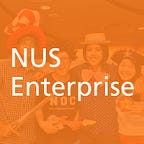ShopBack: a chat with Joel & Henry
ShopBack’s founders open up about what helped their startup grow
Within a year, ShopBack leapt from 300 orders in Singapore in their first month to 140,000 monthly orders across four countries in Asia. How did the start-up grow so quickly?
Henry Chan and Joel Leong are two of the start-up’s founders who went all in to make the business a reality. Upon leaving their roles at Zalora, they hastily assembled their ideas into a presentation to secure their first round of private funding. It only took 4 months to launch the website from the time they started working on it. At the time, they only had 10 merchants on their platform. One year later, the app has gained 500 merchants in Singapore.
Here are some insights from its founders.
Customer complaints are a source of validation
Looking back, the founders attribute their rapid growth to the obsessive and meticulous attention they gave their customers. Joel explains: “Both an order and complaint is a customer validation: just that one is positive and one is negative. If they bother to complain about the website, it means they want to use it!”
With feedback rolling in mercilessly from users about all kinds of issues (e.g. the app’s slow loading time) and customers venting relentlessly about their confusion with the app, the founders had to take the comments in stride to improve and iterate until the user experience gradually became more intuitive.
According to Joel, “Everything looks dramatically different today than last year, and we hope to look back on what we have next year and see the same progress.”
A brand lasts longer than your sales
How did they raise awareness about their brand new start-up? After all, this restless quest for user growth keeps many founders awake at night. Again, it comes down to serenading those who matter most: your customers. Henry gives a nod to Carousell, another high-growth start-up previously based at Blk71: “That’s one thing our neighbor Carousell does very well. The key is word-of-mouth, branding, how well your product is built, and how satisfied your customers are — and when they are satisfied, they are your biggest investor.”
Joel underscores the importance of nourishing a brand: “If you have sales but no brand, then you are earning in the short-term. However, if you have no sales yet, but you have a brand, it can only go up. When we tried to increase our sales: we thought, ‘How can we increase the brand?’ Sales come and go, but the brand is more eternal.”
“Branding is about emotions.”, he says. “When people see your brand and they are happy — you are on to something!”
Making tough decisions with your gut, but measuring the results
Speaking of emotions, how did the entrepreneurs navigate tricky decisions based on their gut — and how do they manage conflicting suggestions within the team? Henry explains: “You can go with your gut, just measure the results. We try different ideas, but we always do a small test first to track the metrics. If it does well, we continue. If it does not go well, we stop. It’s never personal when we choose one idea over another: it’s about making the best decision as a company.”
“One person, one problem”
The best recruiting advice they received was not to practice ‘double-hats’. This meant adhering to the idea of ‘one person, one problem’. The founders spend considerable time ruminating over how to achieve their targets, but what matters most is the people who run the tactics to meet these targets.
“Each person is in charge of one point,” says Henry. “He has his problem and I have my problem. There is no duplicate, making every single person in this company important because no one else is going to do what you’re doing. As long as we get better each day or week, everyone is purposefully moving the whole ShopBack machinery forward.”
These points can range from recruiting employees in the Philippines to fussing over technical details such as getting more people to see their emails. Targets are broken into actionable, measurable goals “so that when you add them all up, the sum of it is… improvement. And that’s how we meet our overall targets such as 30% month-on-month growth.”
Thanks Joel and Henry for your insights on running a high-growth start-up! (www.shopback.sg)
